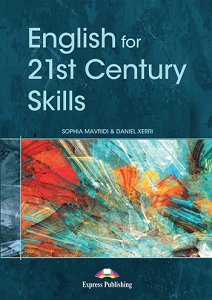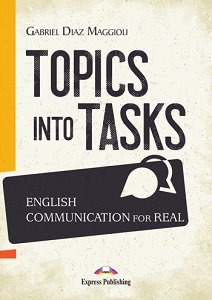“Where, after all, do universal human rights begin? In small places, close to home—so close and so small that they cannot be seen on any maps of the world. […] Unless these rights have meaning there, they have little meaning anywhere.”
Eleonor Roosevelt
No matter what day it is, discrimination and equality can be a great theme for our ELT lessons! After all, our classrooms are micro-societies where equality is established or prejudice is perpetuated. Girls, minorities, migrants, disabled persons, and LGBTQI+ are just some of the groups that face bias in our classes. A Human Rights focus in your ELT lessons can certainly change that.
Human Rights + ELT= A Win-Win
Non-discrimination is not only at the heart of human rights, but also an objective of and by itself when it comes to teaching and learning. Streamlining Human Rights in ELT or creating lessons on the topic is not only a matter of righteousness! It’s also…
- CLIL! Through the topic, students develop an understanding towards others, while simultaneously developing their language skills;
- The best way to turn our students into open-minded, empathetic, global citizens;
- Engaging, relevant, and a great ground for interaction.
Off to a good start with a debate
The Earth is over-populated, and a thousand people have the chance to migrate to a new, imaginary planet, known as Venus 101. Before doing so, they must establish their new planet’s laws.
Your students are members of the committee which decides on whether workplaces in Venus 101 should be obliged to have a gender balance. The groups are divided into ‘in favor’ and ‘against’ advocates, and the students work on their arguments based on prompts and the teacher’s support.
Before the debate starts, dim the lights, re-state their mission, and remind them of their crucial role in setting the foundations of a new, more equal civilisation—exciting, to say the least!
This speaking lesson could complement some of our books, as well! Consider pairing it with chapters related to life in the future, functional language of agreement and disagreement, or gender equality.
Looking to streamline human rights in ELT?
- Ask your students to observe illustrations and identify any stereotypes in play;
- Use inclusive language and encourage students to do the same;
- Challenge the context and language used.
Walk the talk!
- Encourage students to communicate their feelings and express their discomfort;
- Challenge gender stereotypes and encourage children to think beyond them;
- Be alert for signs of discomfort, even when they are not expressed explicitly.
Explore & Excel with Express Publishing
The topic of Human Rights in ELT is multi-dimensional and, indeed, inexhaustible! To explore more, tune in to our Teacher’s Coffee Podcasts and listen to Angelos Bollas’ conversation on the representation of LGBTQI+ identities, inclusion, and human rights. Angelos has also contributed to our invaluable anthology English for 21st Century Skills with his article A Framework toward Inclusive Practices in EFL: The example of LGBTQI+ identities.
References and Further Reading
Bollas, A. “A Framework toward Inclusive Practices in EFL: The example of LGBTQI+ identities.” English for 21st Century Skills. Newbury: Express Publishing , 2020. 141-148.
Ellis, G., & Brewster, J. ‘Tell it again! Τhe storytelling handbook for primary English language teachers’. Retrieved November 18, 2021, from https://www.teachingenglish.org.uk/article/tell-it-again-storytelling-handbook-primary-english-language-teachers.
Struthers, A. 2014. ‘Human Rights Education: Educating about, through and for Human Rights’. The International Journal of Human Rights 19 (1): 53–73. doi:10.1080/13642987.2014.986652.
Byram, M. 2008. From Foreign Language Education to Education for Intercultural Citizenship. Clevedon: Multilingual Matters.
Prodromou, L. (1988) ‘English as cultural action’, ELT Journal, 42:2
Other resources
‘Teaching Human Rights Practical activities for primary and secondary schools 2004’, https://www.ohchr.org/Documents/Publications/ABCen.pdf
‘Recognizing Discrimination.’ Learning for Justice, https://www.learningforjustice.org/classroom-resources/lessons/recognizing-discrimination.
.png)








